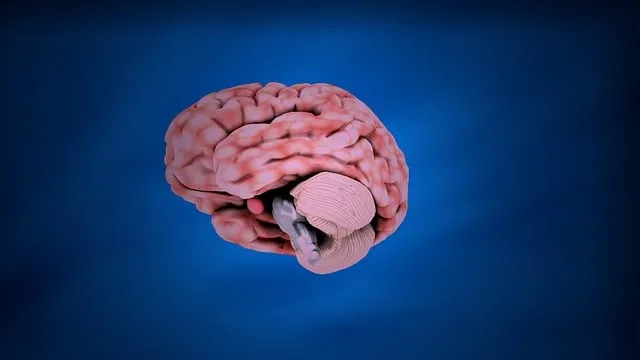Mental health policies are essential tools for societies to support individuals with mental illness, and facilities like Kaiser in Highlands Ranch provide valuable insights through policy analysis. By understanding these policies, advocates can drive improvements in service delivery, risk management, evidence-based practices, and wellness initiatives. Kaiser's inpatient mental health services in Highlands Ranch offer specialized care, including tailored treatment plans, therapies, and Mind Over Matter principles, promoting recovery and reducing stigma. While progress has been made, such as in Depression Prevention initiatives, disparities exist in service availability due to varying regional implementations. Advocacy for policies promoting mental wellness, early intervention, and community-based support is crucial. Combining personal initiatives with policy advocacy creates an inclusive system where individuals can take charge of their mental well-being and seek help without hesitation, like the services offered by Kaiser in Highlands Ranch.
Mental health policy analysis and advocacy are vital components in ensuring accessible, quality care. This article explores these aspects through a comprehensive lens, beginning with understanding mental health policy as a foundation for effective advocacy. We delve into Kaiser’s inpatient mental health services in Highlands Ranch, analyzing current policies and their impact on access to care. Additionally, we outline strategies for successful mental health advocacy and suggest potential improvements, emphasizing the importance of policy in shaping healthcare outcomes.
Key SEO keywords: mental health policy, Kaiser inpatient services, Highlands Ranch.
- Understanding Mental Health Policy: A Foundation for Advocacy
- Kaiser's Inpatient Mental Health Services in Highlands Ranch: An Overview
- Analysis of Current Policies and Their Impact on Access to Care
- Strategies for Effective Mental Health Advocacy and Potential Improvements
Understanding Mental Health Policy: A Foundation for Advocacy

Mental health policy forms the backbone of a society’s approach to addressing and supporting individuals dealing with mental illness. Understanding these policies is paramount for advocacy, ensuring that services are accessible, effective, and tailored to meet diverse needs. In the context of facilities like Kaiser in Highlands Ranch, policy analysis involves scrutinizing inpatient care, treatment protocols, and resources allocated to mental health services.
Advocacy efforts can be directed towards improving risk management planning for mental health professionals, promoting evidence-based practices, and integrating wellness initiatives such as Mindfulness Meditation and Confidence Boosting techniques into standard care. By understanding the existing policy landscape, advocates can push for changes that enhance service delivery, promote recovery, and reduce the stigma associated with seeking mental health support.
Kaiser's Inpatient Mental Health Services in Highlands Ranch: An Overview

Kaiser’s Inpatient Mental Health Services in Highlands Ranch offer a specialized and comprehensive care approach for individuals struggling with severe mental health conditions. This facility is equipped to handle a range of disorders, providing a safe and supportive environment for recovery. The program focuses on individualization, ensuring that each patient receives tailored treatment plans addressing their unique needs.
The services available include intensive therapy, medication management, group support sessions, and education on self-care practices and conflict resolution techniques. By integrating evidence-based therapies with Mind Over Matter principles, Kaiser aims to empower patients to take control of their mental well-being. This holistic approach not only addresses the symptoms but also promotes long-term recovery and improved quality of life.
Analysis of Current Policies and Their Impact on Access to Care

The current policies surrounding mental health care have a significant impact on access to treatment, especially in diverse communities like Highlands Ranch. An analysis of these policies reveals both progress and gaps in ensuring equitable care. For instance, while initiatives aimed at Depression Prevention have gained traction, their implementation varies across regions, leading to disparities in availability. Kaiser, a notable healthcare provider, offers inpatient mental health services but their reach may not extend to all areas, leaving some residents with limited options.
This scenario underscores the importance of advocacy for policies that promote mental wellness, such as the recent Inner Strength Development programs. These initiatives focus on early intervention and community-based support, potentially reducing the burden on existing healthcare systems. Additionally, the Mental Wellness Podcast Series Production can play a vital role in raising awareness, offering accessible educational resources to encourage individuals to seek help without geographical barriers.
Strategies for Effective Mental Health Advocacy and Potential Improvements

Mental health advocacy is a multifaceted endeavor that requires strategic approaches to drive meaningful change. One effective strategy is to raise awareness through education and open conversations, breaking down the stigma associated with mental illness. Engaging with policymakers, sharing personal stories, and providing evidence-based data can influence policy decisions. For instance, highlighting the need for accessible and affordable care, such as exploring options like inpatient mental health services in areas like Highlands Ranch, where Kaiser potentially offers specialized treatment, can lead to policy reforms.
Additionally, incorporating self-awareness exercises, compassion cultivation practices, and confidence-boosting activities into advocacy campaigns can empower individuals to take charge of their mental well-being. These strategies not only promote personal growth but also foster a supportive community, encouraging those facing mental health challenges to seek help without hesitation. By combining personal initiatives with policy advocacy, we can create a more inclusive and responsive mental healthcare system.
Mental health policy analysis and advocacy are vital components in ensuring equitable access to quality care. By understanding the current landscape, such as Kaiser’s inpatient mental health services in Highlands Ranch, we can critically assess policies and their impact on patients. This article has outlined strategies for effective advocacy, highlighting the importance of navigating complex systems to bring about positive change. In light of these findings, continued efforts to improve mental health care are essential, especially by addressing barriers to access, fostering collaboration between healthcare providers, and advocating for policies that prioritize mental well-being.






